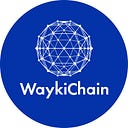WaykiChain Looks into Future | Blockchain Application Scenarios in Identity Authentication
In today’s society, you can’t live without your identity. For example, to have a bank account, to obtain social benefits, to exercise the right to education, to participate in political life, etc, all require a legitimate identity. We all understand the importance of identity to individuals, but today’s identity authentication and privacy issues have become a major problem.
Sometimes, we need to prove ourselves, prove our family, prove our work, prove our property, and so on. For example: to prove that your dad is your dad, to prove that you have not committed a crime, to prove that you have not been married, to prove that you have not given birth to a child, to prove that you have not bought a house. You get exhausted running around but still can’t figure it out.
Funny as it sounds, but it’s really not that easy to prove that “your mother is your mother” if you’re not in the same Household Registration Book with your mother.
In addition, it is common for identity information leaked and replaced.
Obviously still unmarried, why does one have two children been registered under his own name?
So how will blockchain change these chaos?
If the blockchain technology is widely used, everyone can prove their existence and identity through family relationships. Personal information is recorded on the blockchain, just like it is recorded on a distributed public ledger. Our current ID card would be like a barcode or QR code that is both hard to lose and easy to prove ourselves.
1) Data recorded in blockchain cannot be tampered with.
Due to the decentralization, encrypted storage, time stamp and other characteristics of the blockchain, as long as the personal information is recorded in the chain, there is basically no risk of being tampered with. In this way, the identity information record can keep exclusive.
2) Analyse if the result is correct.
At present, ID cards use public data to record and classify personal public information, such as biological information and personal characteristics. In general, personal identity is non-unique and requires the support of big data. The traceability of the blockchain allows the acquisition, transaction, circulation, and computational analysis of data to be stored in the blockchain, ensuring the correctness of the data analysis results.
3) Protect personal privacy.
Through the distributed storage of the blockchain, asymmetric encryption and other functions, personal information stored in the blockchain can be safely protected. By grasping the private key, you can set the permissions of the information to protect personal information from stealing.
4) Convenient “electronic ID”
When we create a blockchain ID card, we need to set an encrypted password and fill in personal information and upload personal photos to the account. By linking blockchain IDs to work files and family files, blockchain IDs can be used to identify individuals more securely and conveniently. Through the online electronic identification, you can spare a lot of complicated offline paper proof. The required information can be seen at a glance by checking on the chain, saving a lot of manpower, resources, time and financial costs.
Website: https://www.waykichain.com/
Telegram: https://t.me/wiccofficial
Twitter: https://twitter.com/wayki_chain
Facebook: https://www.facebook.com/waykichainofficial/
CMC: https://coinmarketcap.com/currencies/waykichain/
Email: WaykiChain@outlook.com
